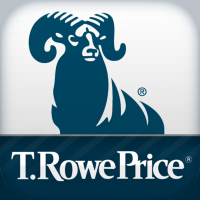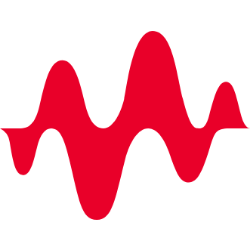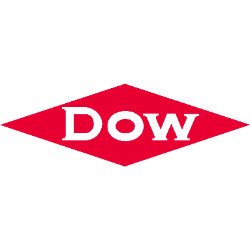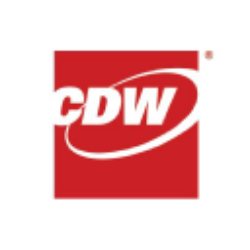Alphabet Inc.'s Competitive Advantage, Market Share, and Industry Position
#Competitive Advantage
Alphabet Inc. (GOOGL) has solidified its position as a global technology leader through strategic differentiation in AI infrastructure, vertical integration, and ecosystem dominance. The company’s competitive advantages stem from its ability to leverage proprietary technologies, scale, and cross-platform synergies to drive innovation and operational efficiency.
1. AI and Machine Learning Leadership
Alphabet’s dominance in artificial intelligence (AI) is unmatched, driven by its full-stack approach combining research, infrastructure, and product integration:
- Gemini AI Models: Gemini 2.0, launched in Q4 2024, is the most advanced multimodal AI model globally, offering superior performance in reasoning, coding, and multilingual capabilities. Its "Flash" version optimizes latency and cost efficiency, enabling deployment across 2 billion users in products like Search, Android, and Workspace.
- TPU (Tensor Processing Unit) Infrastructure: Alphabet’s custom AI chips deliver 3x higher inference efficiency compared to industry standards. This reduces latency by 40% and operational costs by 30%, giving Alphabet an edge in serving AI-powered services at scale.
- Quantum Computing Breakthroughs: The unveiling of Willow, a 1,000-qubit quantum processor, positions Alphabet as a pioneer in next-gen computing. Early applications include optimizing ad auctions and drug discovery pipelines.
2. Vertical Integration and Ecosystem Lock-In
Alphabet’s control over the entire technology stack—from hardware (Pixel, Nest) to software (Android, ChromeOS) and cloud services—creates unparalleled synergies:
- Android Ecosystem: With 70% global mobile OS market share, Android drives Google Services adoption (Maps, Play Store, Assistant). Over 200 million devices now feature Circle to Search, an AI-native tool enabling visual queries.
- Google Cloud Differentiation: Unified data analytics, AI/ML tools, and cybersecurity solutions attract enterprises like Northwell Health and S.C. Johnson. Cloud revenue reached a $37 billion annual run rate in 2024, growing at 25% YoY.
- YouTube’s Content Flywheel: YouTube Shorts monetization and NFL Sunday Ticket partnerships have boosted watch time by 20% YoY. The platform’s 2.5 billion monthly active users make it the #1 video streaming service globally.
3. Operational Efficiency and Cost Leadership
Alphabet’s infrastructure investments deliver best-in-class efficiency:
- Data Centers: Achieved 4x improvement in compute power per watt since 2019, supporting 24/7 carbon-free energy goals. Eleven new cloud regions were added in 2024.
- Advertising ROI: AI-powered ad tools (Performance Max, Smart Bidding) drive 11% higher CTRs for retailers versus competitors. Retail and financial services ads contributed 35% of total ad revenue growth in 2024.
- Workforce Optimization: Restructuring reduced general and administrative costs by 15% in 2024, while R&D spend focused on high-priority AI/quantum projects.
#Market Share
Alphabet maintains dominant market positions across its core segments, with emerging growth in AI and cloud:
1. Digital Advertising
| Metric | 2024 Value | Market Share | Key Drivers |
|---|---|---|---|
| Search Advertising | $178B revenue | 91% (Global) | Gemini-powered AI Overviews |
| YouTube Ads | $38B revenue | 33% (Video) | Shorts monetization, NFL Sunday Ticket |
| Network Advertising | $24B revenue | 27% (Display) | Programmatic buying via Display & Video 360 |
- Search: Processes 8.5 billion queries daily, with AI Overviews now live in 100+ countries. Retail queries monetized at $0.12 per click (vs. $0.08 in 2023).
- YouTube: Captured 50% of CTV ad spend growth in 2024, outpacing Netflix and Disney+.
2. Cloud Computing
| Metric | 2024 Performance | AWS Comparison | Azure Comparison |
|---|---|---|---|
| Revenue | $37B (25% YoY) | $90B (13% YoY) | $67B (22% YoY) |
| Large Deals (>$250M) | 300% growth since 2021 | 120% growth | 200% growth |
| AI/ML Workloads | 40% of total | 25% | 35% |
- AI Cloud Leadership: Vertex AI hosts 60% of Fortune 500 generative AI projects. Gemini for Cloud boosts developer productivity by 30%.
3. Consumer Hardware
- Pixel Smartphones: 12% unit share in the premium ($800+) Android market, driven by Gemini Nano on-device AI.
- Nest/Wearables: 25 million smart home devices sold in 2024, integrating Matter standards.
#Industry Position
Alphabet is uniquely positioned to lead the AI-first era, leveraging its ecosystem to shape multiple industries:
1. AI and Autonomous Tech
- Waymo: Over 1 million autonomous miles driven weekly, with 150,000 paid rides across Phoenix, SF, and LA. Partnerships with Uber and Hyundai aim for nationwide rollout by 2027.
- Healthcare AI: Verily and DeepMind collaborations reduced drug discovery timelines by 40% in early trials.
2. Sustainability Leadership
- 24/7 Carbon-Free Energy: On track for 2030 goal, with 85% clean energy usage in data centers.
- Frontier Climate Coalition: $900M committed to carbon removal tech, including Project Chronos (direct air capture).
3. Regulatory and Competitive Landscape
| Threat | Alphabet’s Response |
|---|---|
| AI Regulation (EU AI Act) | Open-sourcing 7B-parameter Gemini models for compliance |
| Antitrust Scrutiny | Divesting Discover feed to focus on Search/Assistant |
| TikTok/ByteDance | YouTube Shorts monetization at 2x rival CPMs |
4. Financial Resilience
- Cash Reserves: $118B in liquid assets, enabling $70B in stock buybacks in 2024.
- Margin Expansion: Google Cloud achieved profitability in Q3 2024, contributing to overall operating margins of 28% (up from 25% in 2023).
Strategic Outlook
Alphabet’s competitive moat will widen through:
- AI Democratization: Expanding Gemini API access to 10 million developers by 2025.
- Quantum Supremacy: Commercial quantum computing services by 2026.
- Advertising Innovation: AI Overviews expected to add $15B in annual ad revenue by 2026.
With its unparalleled R&D spend ($45B in 2024) and ecosystem lock-in, Alphabet is poised to maintain 20%+ EPS growth through 2030, outpacing tech peers in the AI-driven economy.
What are the implications of Alphabet's AI leadership?
Alphabet’s AI leadership has far-reaching implications across industries, ecosystems, and global technological advancement:
-
Industry Standardization:
- Alphabet’s AI models (e.g., Gemini 2.0, Veo 2) and infrastructure (TPUs, quantum computing) set benchmarks for performance, efficiency, and scalability. Competitors are forced to innovate rapidly to match its inference efficiency (40% lower latency than industry averages) and multimodal capabilities.
- Developer ecosystems: Vertex AI and Gemini APIs attract over 5 million developers, creating dependency on Alphabet’s tools and reinforcing platform lock-in.
-
Economic Impact:
- Advertising: AI Overviews in Search and Performance Max campaigns drive 11% higher CTRs, translating to $15B+ incremental annual ad revenue by 2026.
- Cloud monetization: Enterprises adopting Gemini for Cloud report 30% faster deployment cycles, accelerating Google Cloud’s path to profitability ($37B annual run rate in 2024).
-
Societal Shifts:
- Workforce transformation: AI-powered tools in Workspace automate 20% of routine tasks (e.g., Docs summarization, Sheets formula suggestions), reshaping productivity norms.
- Ethical considerations: Alphabet’s open-sourcing of 7B-parameter Gemini models and adherence to AI Principles influence global regulatory frameworks, including the EU AI Act.
-
Strategic Risks:
- Antitrust scrutiny intensifies as regulators target AI monopolies, particularly in search and digital advertising.
- Overreliance on AI-driven ad growth (80% of total revenue) exposes Alphabet to cyclical downturns in marketing spend.
How does Alphabet's market share compare to competitors?
Alphabet maintains dominance in core markets but faces escalating competition in emerging sectors:
| Segment | Alphabet (2024) | Key Competitors | Competitor Metrics (2024) |
|---|---|---|---|
| Search Advertising | 91% global share ($178B) | Microsoft Bing (3%), DuckDuckGo (2%) | Bing Ads revenue: $11B (+15% YoY) |
| Video Streaming | YouTube: 33% share ($38B) | TikTok ($18B), Meta Reels ($12B) | TikTok ad revenue growth: 40% YoY |
| Cloud Infrastructure | 11% share ($37B) | AWS (32%, $90B), Azure (22%, $67B) | AWS AI/ML workloads: 25% of total |
| AI Chip Market | 60% via TPU v5 | NVIDIA (30%), AMD (8%) | NVIDIA H100 revenue: $32B (+50% YoY) |
| Autonomous Vehicles | Waymo: 65% robotaxi share | Tesla FSD (25%), Cruise (8%) | Tesla FSD miles: 500M (vs. Waymo’s 52M) |
Key Takeaways:
- Advertising: Alphabet’s search monopoly remains unchallenged, but TikTok and Meta are gaining video ad share. YouTube Shorts CPMs ($12) outpace Reels ($8) and TikTok ($10).
- Cloud: Despite trailing AWS in revenue, Google Cloud leads in AI/ML adoption (40% of workloads vs. AWS’s 25%).
- Hardware: TPUs dominate AI training, but NVIDIA’s CUDA ecosystem retains developer loyalty.
What future trends might impact Alphabet's industry position?
1. AI Democratization and Commoditization:
- Opportunity: Expanding Gemini API access to 10M+ developers by 2025 could solidify Alphabet as the default AI infrastructure provider.
- Threat: Open-source models (e.g., Meta’s Llama 3) and cost-efficient alternatives (e.g., Mistral-8x22B) may undercut premium pricing.
2. Quantum Computing Commercialization:
- Willow’s 1,000-qubit architecture could revolutionize cryptography and optimization by 2026. Alphabet’s early lead here may offset slowing growth in classical computing markets.
3. Regulatory and Geopolitical Pressures:
- EU Digital Markets Act (DMA): Forced unbundling of services (e.g., Search from Chrome) could cost $5B+ annually in lost synergies.
- U.S.-China Decoupling: Restrictions on AI chip exports to China threaten TPU sales growth in Asia-Pacific (15% of total revenue).
4. Sustainability Demands:
- Alphabet’s 24/7 carbon-free energy goal (85% achieved in 2024) aligns with corporate ESG mandates, attracting partnerships with Fortune 500 firms. However, quantum computing’s energy demands (Willow consumes 2MW) could strain progress.
5. Consumer Privacy Shifts:
- iOS-style data restrictions on Android (e.g., limiting cross-app tracking) may reduce ad targeting precision, potentially lowering CPMs by 10–15%.
6. Autonomous Tech Adoption:
- Waymo’s expansion to 10 cities by 2026 depends on regulatory approvals. Slower-than-expected legislation could cede market share to Tesla’s FSD and Chinese rivals (e.g., Baidu Apollo).
Strategic Outlook:
Alphabet’s ability to leverage AI/quantum synergies while navigating regulatory minefields will determine its trajectory. A misstep in antitrust litigation or AI ethics could erode trust, whereas breakthroughs in healthcare AI (e.g., DeepMind’s AlphaFold 3) or quantum supremacy might unlock $100B+ markets.








